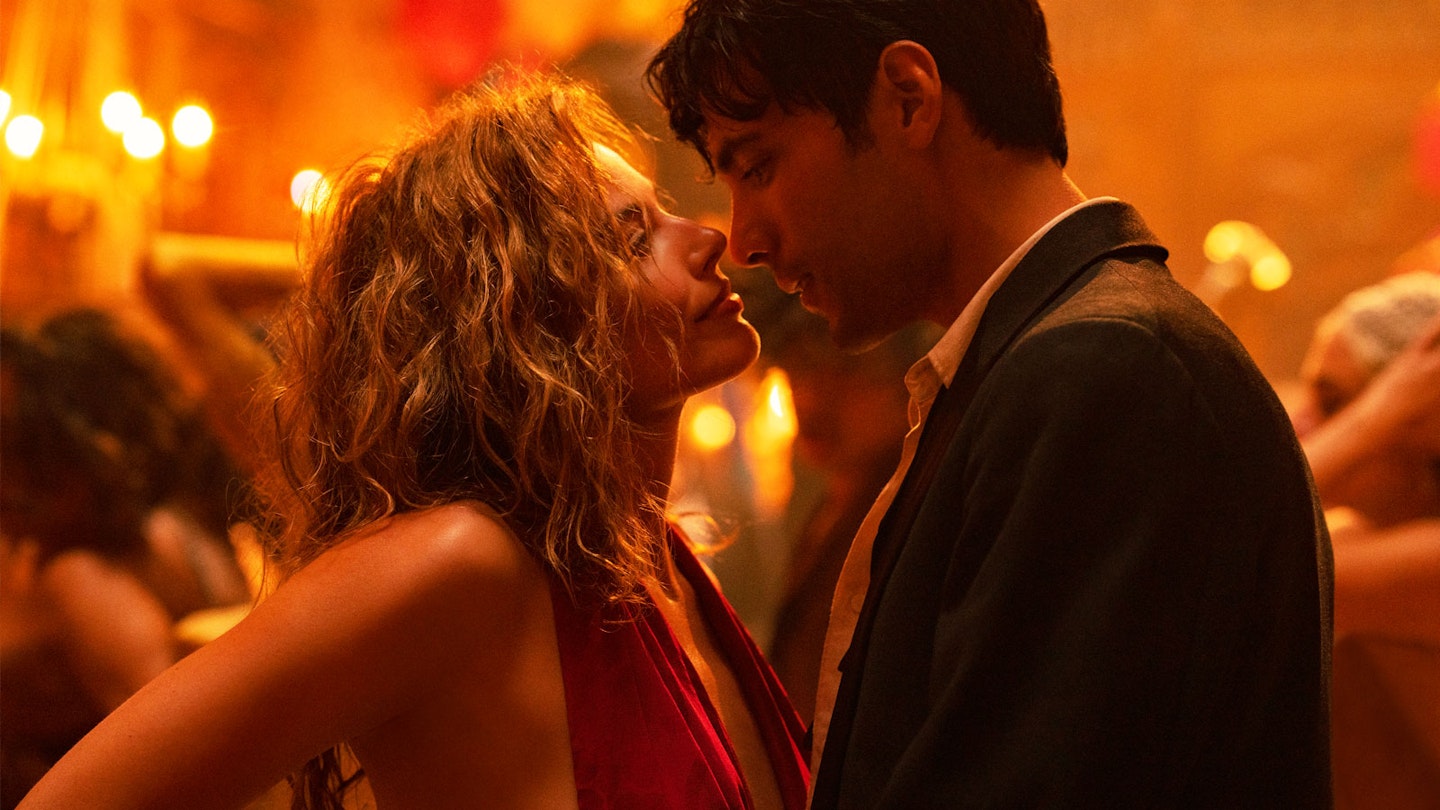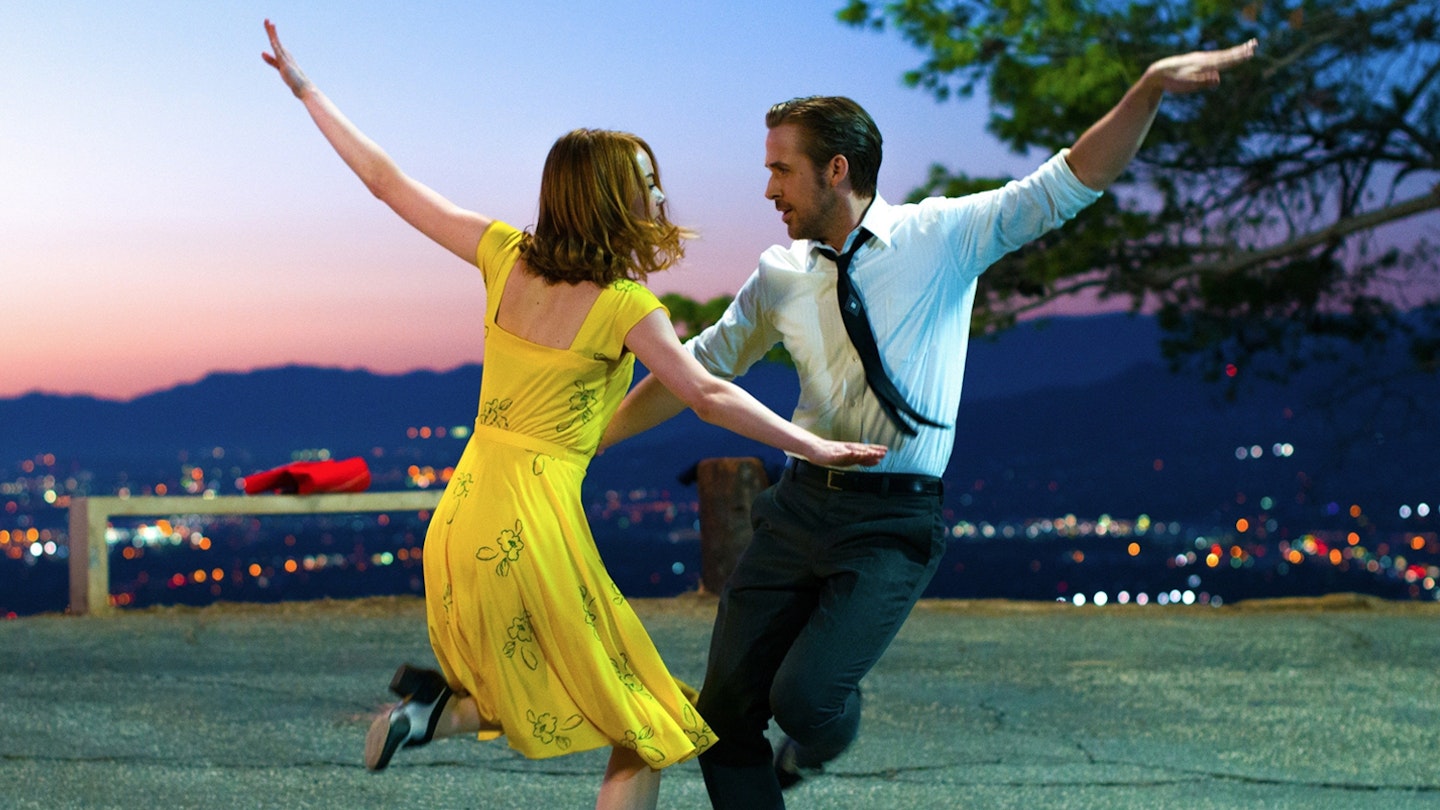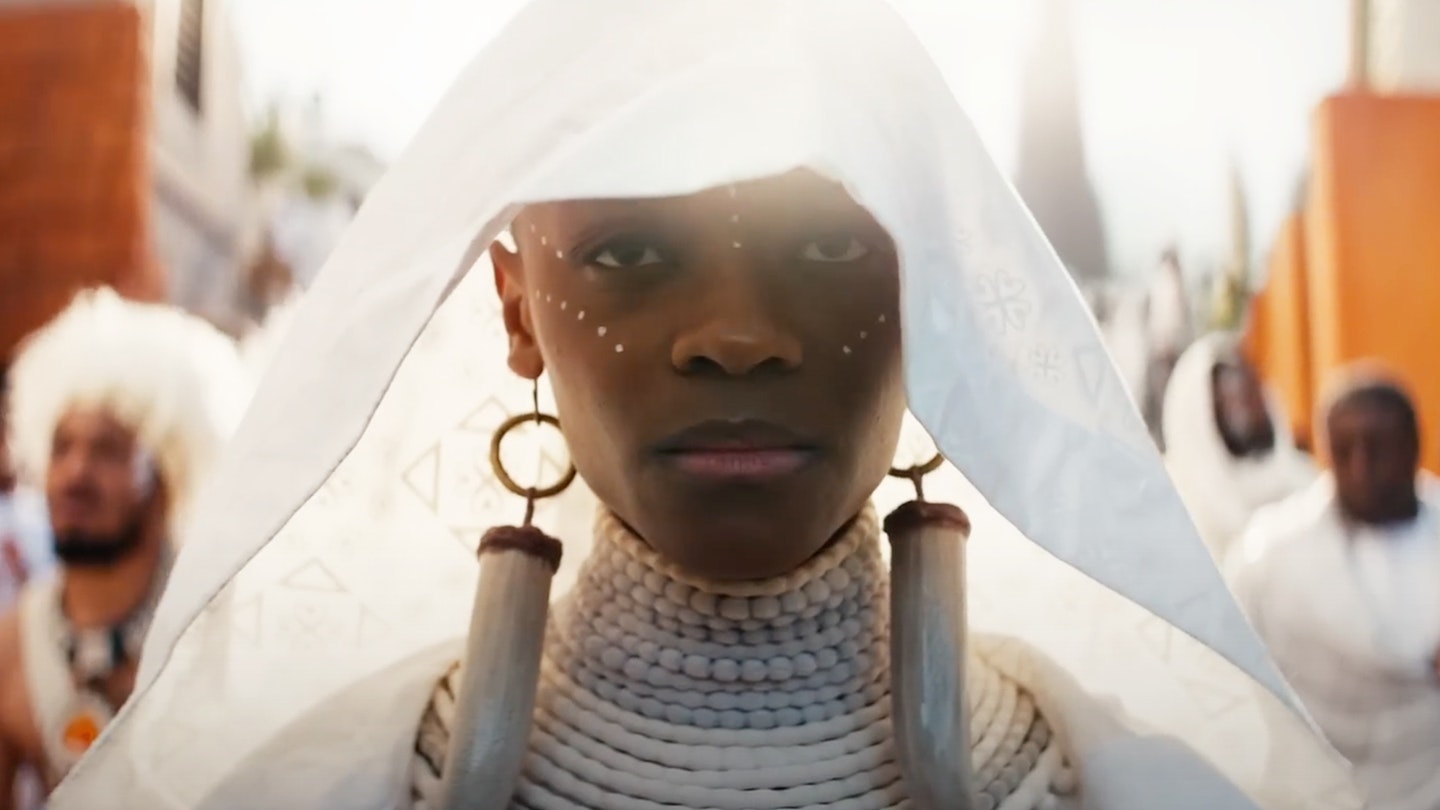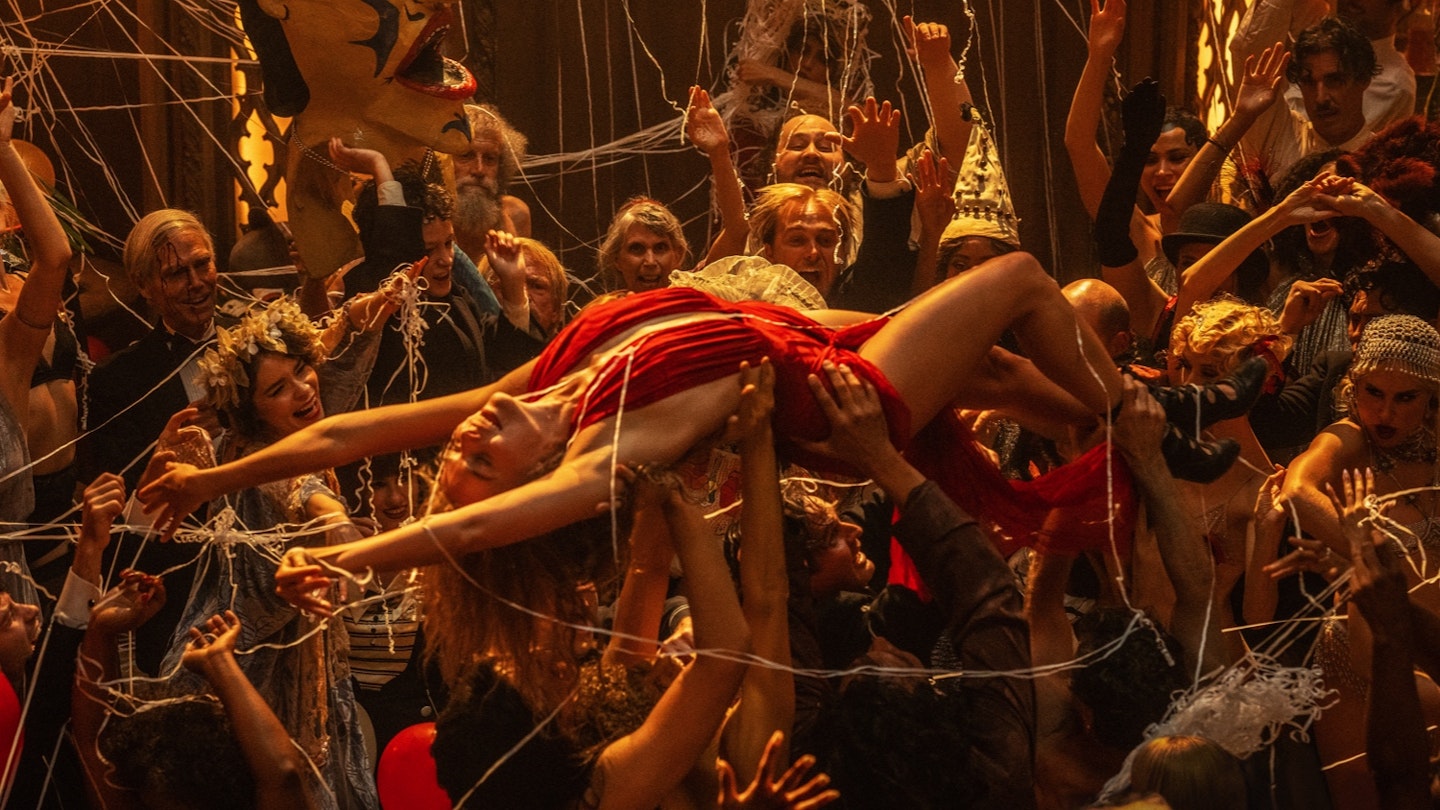You will seldom find a film as simultaneously romantic and repulsive as Babylon. Damien Chazelle’s palpably impassioned, occasionally overwhelming ode to the epic moviemaking magic of the pioneering studio era features at least four bodily fluids (three of which splash vibrantly across the screen during the film’s ambitious opening 45 minutes), and chucks out grotesquely framed sex acts like candy. For every shot of a single tear rolling down Margot Robbie’s stoic face, there’s one of an elephant’s exploding rectum. It’s a visceral, mesmerising balancing act that doesn’t stop tipping throughout the film’s packed-to-the-rafters three-plus-hour runtime.
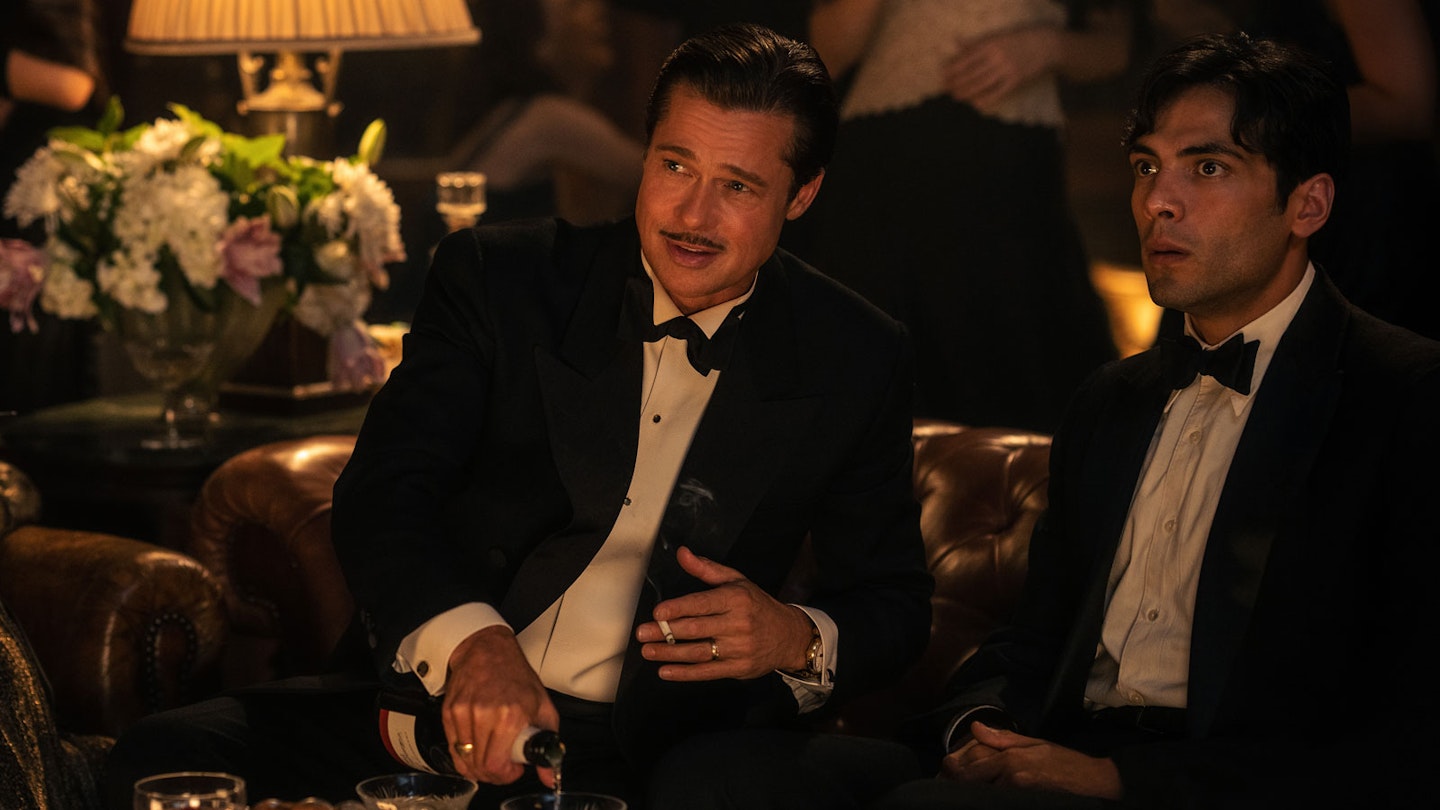
Chazelle wastes no time in setting his tempo, as he plunges into a 35-minute tour of a buzzy Hollywood party, rife with undulating dancers, live jazz and an Aladdin’s cave of hard drugs. Aspiring star Nellie (Robbie) has been snuck in by the puppy-eyed industry rookie Manny (Diego Calva). A freshly single A-list actor Jack (Brad Pitt) is the man of the hour. It’s a triumph of a set-piece; a relentlessly kinetic jamboree with Robbie at the epicentre, like a red spinning top with long, erratic limbs. It will leave you reeling. Only no sooner has the dust settled, it’s kicked it back up again, as the next day the three head to a huge, violent and tumultuous film set in the desert; Nellie making her debut in a dance scene, Jack roping Manny in to help on a grand battlefield-set romance. Here the film is at its most enjoyable, as Chazelle gleefully explores every corner of production, from the throbbing, sweaty temples of the directors working across different shoots to the vast sandy vistas peppered with exhausted extras.
Has Chazelle made a remarkable movie? He’s certainly made an unforgettable one.
As Nellie, Robbie is impressively athletic, whether she’s wrestling a rattlesnake or making a stomach-churning exit at an upper-crust party. Yet her range is set firmly to Harley Quinn in ’20s Hollywood — maniacal and exuberant — which leaves Nellie’s more emotionally demanding moments somewhat lacking. Clumsy dialogue contributes to this problem elsewhere: a two-hander between the brilliant Jean Smart as a seasoned gossip journalist and a post-heyday Jack descends into saccharine talk of ghosts and angels and the enduring power of celluloid.
Chazelle assumes his audience shares his obsession with what cinema means, but it’s never made entirely clear what that is. When Manny falls down a depraved rabbit hole with shady crime boss James (Tobey Maguire, on creepy, excellent form), the film veers off track, painting marginalised performers as feared freaks without the celebratory or comedic subtext. And storylines involving Li-Jun Li’s queer performer and Jovan Adepo’s session musician-turned-on-screen star get overshadowed by the film’s insistent messaging on the power of film.
Has Chazelle made a remarkable movie? He’s certainly made an unforgettable one. The set-pieces are masterful, the comedy caustic and bold, the ensemble cast commanding even in the face of chaos. Its ambition is undeniable. Yet even with all its flair, what it’s trying to say about cinema gets lost in the noise.
